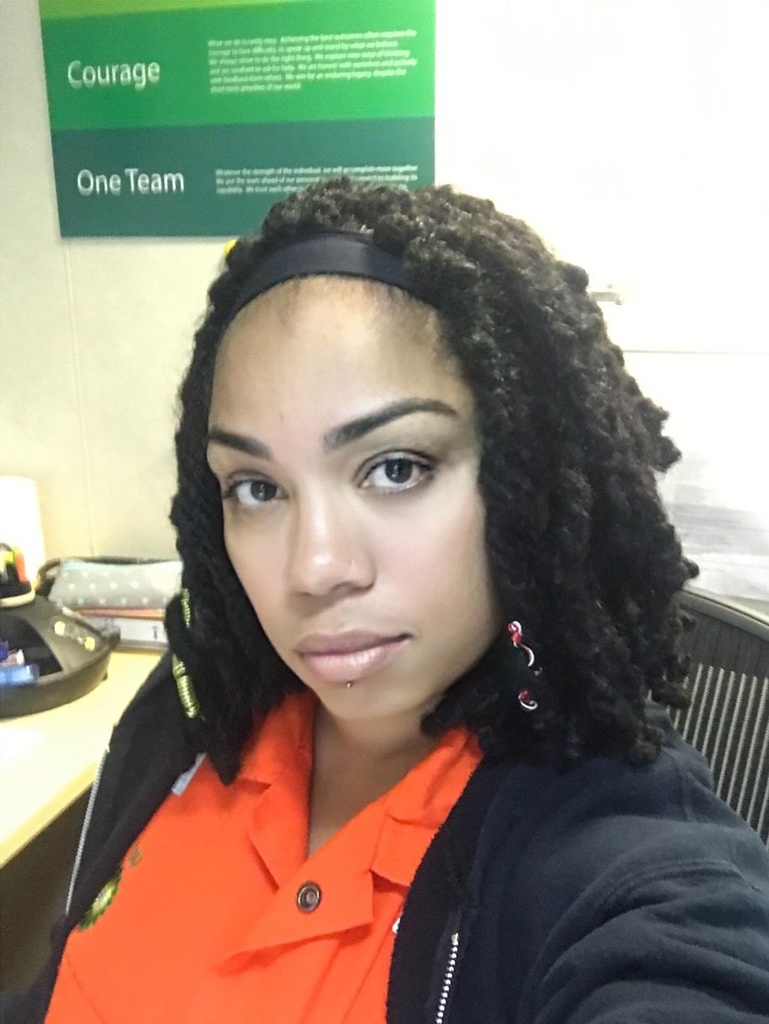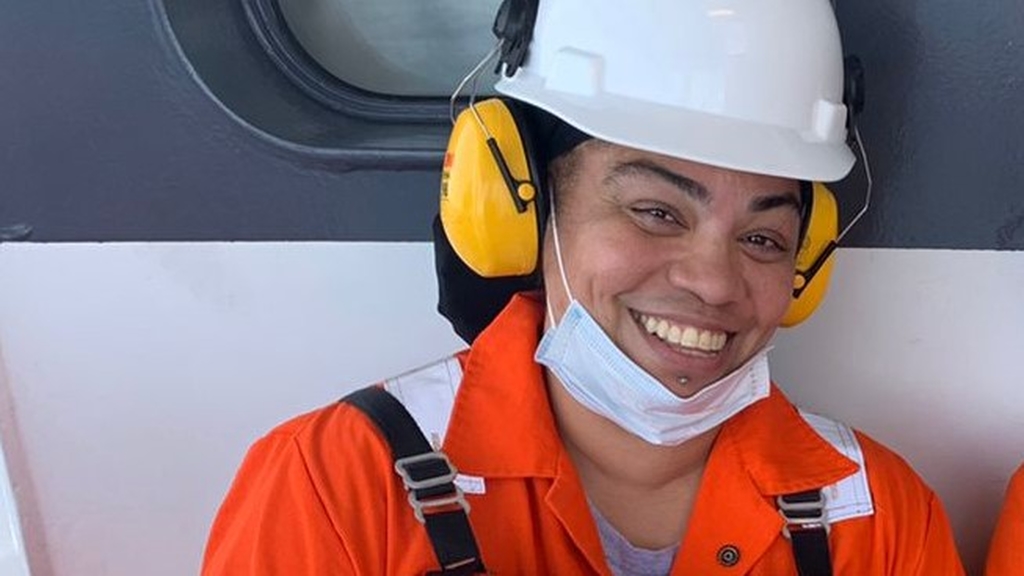When it comes to jobs in the energy sector, many people do not know the range of positions available and in this male-dominated sector, many women do not know there is a place for them.
Stacy-Maria Trier has often been one of the few or the only women in the room in her 24-year career.
Trier is an Offshore Production Team Leader presently holding delegation as an Offshore Installation Manager for BP.
As a mutual friend said, she basically keeps the lights on in T&T.
She further explained to Loop News: “I am accountable for the day-to-day delivery of safe, reliable and compliant operations with the ultimate goal of stable delivery of gas to our markets. As simple as this sounds it is part of a multi-layered operation heavily dependent on a close-knit team of skilled and experienced people both onshore and offshore. My responsibilities span from the safety of our people and the maintenance of our facilities; to the optimisation of our production.”
A graduate of St Joseph’s Convent, San Fernando, Trier began her journey into the energy sector when she enrolled in a process operations course at the San Fernando Technical Institute after A ‘levels. The last of several children, her mother, Monica Morales, couldn’t afford to send her to University so attending Tech, as southerners called it, was the science student’s best choice.
Upon completion, Trier found employment at the former Caroni 1975 Ltd and moved through various processes and organisations before arriving at her present role.
“I’ve held roles in the Process Operations field from Production Technician to Offshore Installation Manager (Ag). I am fortunate to have served Trinidad and Tobago in both our downstream and upstream energy sectors (onshore and offshore). I worked in the Point Lisa’s Industrial estate for 10 years (Desalcott, Cliffs and Associates, IPSL) and have been offshore for 14 years (BHP and BP). It’s been an exciting, challenging, unique and character-building journey. Over the years I was able to develop professionally and personally while bringing to the table my own flavour to a job that I approach with passion because I truly enjoy and love what I do,” she said.
Looking back, Trier said working in the energy sector was her destiny.
She recalled that when she was around five years of age, her father, the late father, Sylvan Trier who worked in the industry during the boom years, took and her and her mother for a drive one evening through the Point Lisa’s Industrial Estate.
“I was absolutely fascinated with the lights towering into the sky and started to ask him about the “fire and smoke coming out that pipe”. I always used to ask lots of questions. When he explained to me what it was I told my mother “I am going to work there”. She always reminds me of that night when we talk about what I do. I distinctly remember the first day I walked past the gates and into my first process plant. I was awed and knew then that this is where I wanted to be and what I wanted to do. Granted I didn’t know what “this” was but I knew I felt like it was the right place for me,” she said.
“Once I got involved in the industry and gained a deeper understanding of the career paths and the importance of the industry to the country, I became even more convinced that this was my calling. I never allowed gender to be a hurdle to progress. While biases do in fact exist, it is not everywhere. Equally important were male and female allies and advocates. Peer and leadership support is essential in purposefully targeting the aim to ‘Break the Bias’.”

Stacy-Maria Trier
Trier said throughout her career, she has often been the lone woman in the room or on a plant. In the downstream industry, she encountered other women who were production technicians but in the upstream industry, she has been the only female doing what she does offshore.
“Over the years I haven’t seen as many women as I would have liked to. Unless the numbers are there it is difficult to reach the tipping point of breaking the bias, which is the theme of this year’s International Women’s Day. A lot of young women don’t know that this exists as a career. Nobody understands what I do,” said Trier, stating that she is the only woman in T&T to hold this job.
She said the retention rate for women is low because of various factors. Among them is that many women believe they have to choose between having a family and a job because you could be offshore from seven to 21 days at a time.
Trier, who is not married and does not have children, said she has had to make a lot of choices herself but she is passionate and happy about her job.
Being offshore is a lonely existence for her, she revealed, however. As a woman especially in a leadership position, she has had to be very careful about her interactions with the men around her.
“Being in an environment where I have worked and lived on a shift basis throughout my career has been at times, lonely, frequently being the only female on a facility of over 50 persons for weeks at a time. I’ve worked 4 x 4, 7 x7, 14 x 14 and 21 x 21 rotations. The balance between my personal and professional commitments has been wrought with difficult choices. My intent has been to maintain both aspects. There have been successes and failures but all my choices were wholly mine,” she revealed.

Sponsored by U by Kotex
Other challenges she has faced include deliberate or unconscious bias, stereotyping and discrimination. Trier said being able to identify the difference and calling it out directly but respectfully has been essential.
At times, throughout her career, those biases resulted in her having to her thought processes, technical decisions and expectations more than her male peers.
“While some may see this as a negative aspect I saw this as my personal goal to get to a point where my peers and leaders had the trust and confidence in me as a source for valid, honest, technically sound inputs in the decision-making process,” she said.
Being the first of anything also has its inherent challenges, particularly when it comes to finding success stories and female role models in field leadership within the industry. Trier realised the onus was on her to clear a path for others to follow.
“As I gained maturity and experience I recognised that I would have to forge my own path. I made mistakes along the way but navigating them without past examples to draw from was a two-edged sword. While these situations allowed me to grow as an individual, I eventually came to the recognition that my mistakes and emergence through them would be the example for women who come after me,” she explained.
“I began to feel a degree of self-imposed pressure which I learned to apply in a different, positive way by keeping personal documentation of my problem-solution-outcome pathway. I’m renowned for always documenting in my notebook. I am my biggest critic. Good or bad, it has kept me afloat for over two decades.
With so few women in the industry, Trier said she makes it a point to support other women and help them to have a voice at the table. She said it is possible for women to progress and sustainably hold field leadership roles in the Local Upstream Energy Industry but not many girls and young women are aware that this is an option.
“For this and other male majority or unconventional roles, the power of support is immeasurable. With fewer numbers, purposeful support amongst women is essential in making our presence move the dial. Collectively we can ‘Break the Bias’ by believing in ourselves, being self-aware, having checkpoints as life changes where you test if your current position is still the path you want, seeking out mentorship, and using adversity as character-building opportunities,” she said.
Trier said her desire for us as a nation is to get to the place of being able to have a conversation like this one without the need for it to be referenced as unconventional.
She said: “I wish to see it become a part of mainstream cultural norms for in-field energy industry roles to be equitable in gender, numbers and progression rates to leadership. Conscious actions by organisations to level the playing field would be a step in the right direction toward gender equality.”

